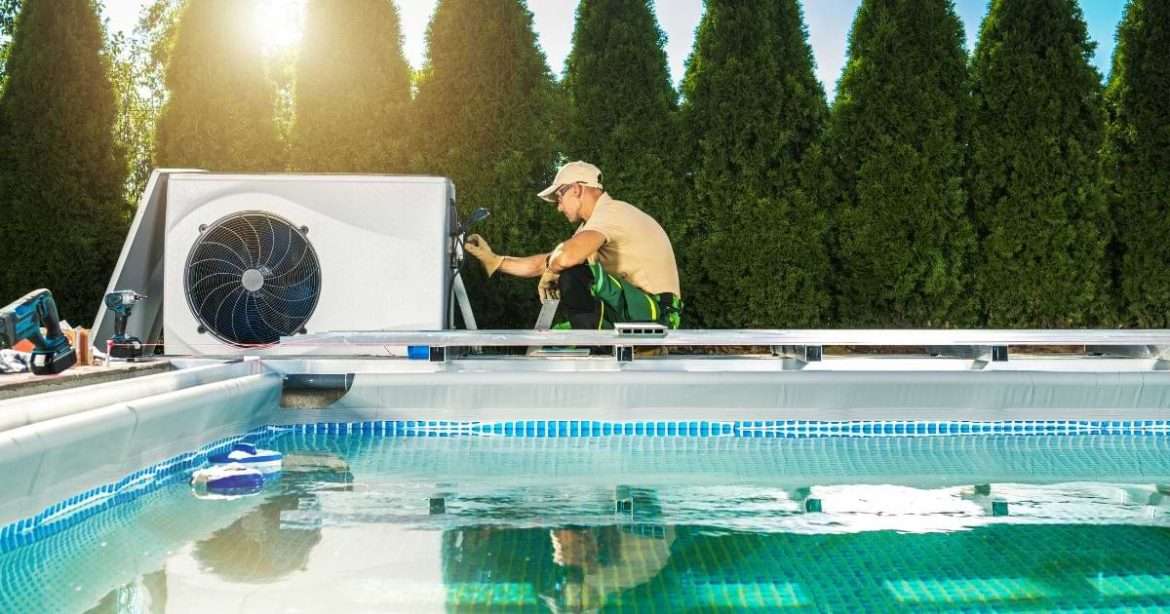Table of Contents
Are you ready to dive into a warm and inviting pool this summer without breaking the bank? As the temperatures rise, so does the desire to take a refreshing swim in your backyard oasis. However, heating your pool can often be an expensive endeavor. But fear not! In this article, we will explore nine cost-effective ways to heat your pool, allowing you to enjoy its crystal-clear waters for longer periods without worrying about skyrocketing utility bills.
From solar covers and liquid solar blankets to heat pumps and solar heaters, discover innovative methods that will keep your pool water at the perfect temperature while saving you money in the process. So grab your towel and let’s dive into these economical solutions for heating your pool!
Solar Pool Covers
Solar pool covers, also known as solar blankets, are an excellent cost-effective solution to heat your pool. These covers trap the sun’s heat, prevent evaporation, and retain the warmth in the pool water. By using a solar pool cover, you can harness the power of the sun to heat your pool during the day and keep it warm overnight.
Solar Water Heating Systems
Another environmentally friendly and cost-effective option is a solar water heating system. These systems use solar panels to capture the sun’s energy and heat the water before it circulates back into the pool. Solar water heating systems can significantly reduce your pool heating costs while relying on renewable energy sources.
Heat Pumps For Pool
Unlike gas heaters, heat pumps do not generate heat but rather move it from one place to another. Heat pumps are highly efficient and can provide reliable heating for your pool while minimizing energy consumption.
Gas Pool Heaters
Gas pool heaters, typically powered by natural gas or propane, are a popular choice for Sydney pool heating. While they may have higher operating costs compared to other options, gas heaters offer rapid heating and are suitable for pools that require quick temperature adjustments or heating in colder climates.
Heat Exchangers
Heat exchangers offer an indirect method of pool heating by utilizing existing heating sources, such as a boiler or a solar water heating system. These systems transfer heat from the primary heating source to the pool water through a series of coils. Heat exchangers are energy-efficient and provide an effective solution for heating your pool using alternative heat sources.
Electric Resistance Heaters
Electric resistance heaters use electric currents to generate heat, making them a viable option for pool heating. While they may have higher operating costs compared to other methods, electric resistance heaters are relatively easy to install and maintain. They provide consistent heating and are suitable for smaller pools or spas.
Geothermal Heating Systems
Geothermal heating systems utilize the stable temperature of the earth to heat your pool efficiently. These systems extract heat from the ground and transfer it to the pool water. Geothermal heating systems are highly energy-efficient and can significantly reduce your pool heating costs over time.
Wind Power Heating
If you have access to strong and consistent winds, wind power can be a cost-effective way to heat your pool. Wind turbines can generate electricity, which can then be used to power electric resistance heaters or heat pumps. Wind power heating is an environmentally friendly option that harnesses renewable energy sources.
Biomass Heating Systems
Biomass heating systems utilize organic materials, such as wood pellets or agricultural waste, to generate heat. These systems can be used to heat water that is circulated through your pool. Biomass heating systems are cost-effective and offer a sustainable alternative to traditional heating methods.
FAQs
Are solar pool covers effective in heating the pool?
Solar pool covers are effective in heating the pool by capturing the sun’s heat and retaining it in the water, resulting in a warmer pool temperature.
How do heat pumps for the Pool work?
heat pumps extract heat from the surrounding air and transfer it to the pool water, providing efficient and cost-effective heating.
What are the advantages of using geothermal heating systems for pool heating?
Geothermal heating systems are highly energy-efficient, utilize the stable temperature of the earth, and can significantly reduce pool heating costs.
Can wind power be used to heat a pool?
Yes, wind power can be harnessed to generate electricity, which can then power electric resistance heaters or heat pumps for pool heating.
What are biomass heating systems, and how do they work?
Biomass heating systems use organic materials to generate heat, providing a sustainable and cost-effective solution for pool heating.
Conclusion
Heating your pool doesn’t have to be an expensive endeavor. By exploring cost-effective options such as solar pool covers, solar water heating systems, heat pumps for pools, gas heaters, heat exchangers, electric resistance heaters, geothermal systems, wind power heating, and biomass heating, you can find a solution that suits your budget and minimizes energy consumption. Enjoy a warm and inviting pool while being conscious of your expenses and environmental impact.
